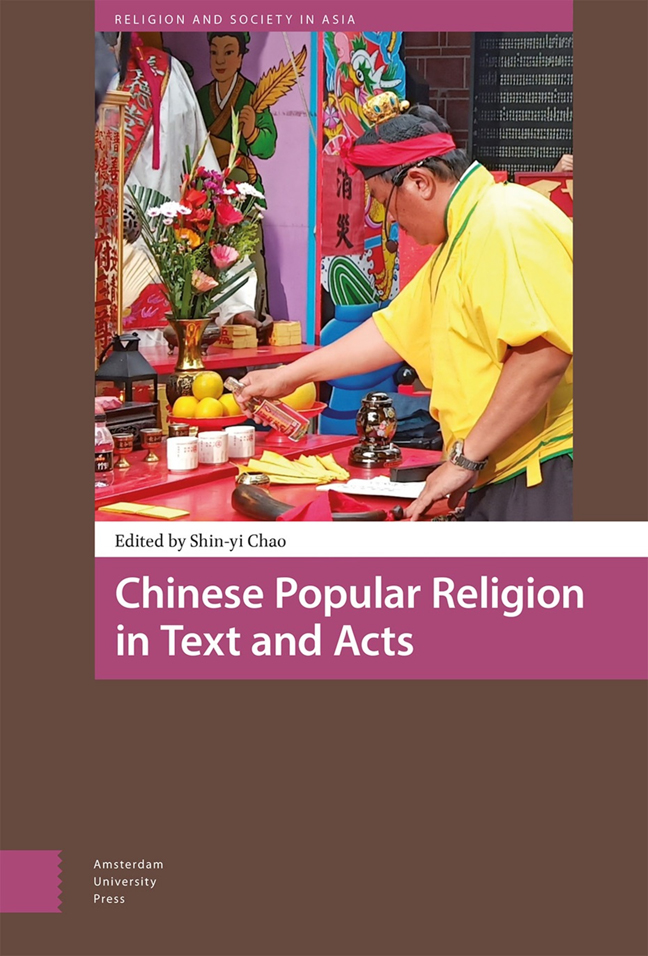Book contents
- Frontmatter
- Contents
- List of Figures and Tables
- Acknowledgements
- Dedication
- Introduction: Text, Acts, and Traditionalization: Performing Chinese Popular Religion
- Section One Texts And Acts
- Section Two Scriptures and Rituals
- Section Three Saints’ Legends and Gods’ Lore
- Section Four Temple Festivals and Pilgrimages
- Index
2 - Temple Inscriptions as “Text Acts”
Published online by Cambridge University Press: 26 March 2024
- Frontmatter
- Contents
- List of Figures and Tables
- Acknowledgements
- Dedication
- Introduction: Text, Acts, and Traditionalization: Performing Chinese Popular Religion
- Section One Texts And Acts
- Section Two Scriptures and Rituals
- Section Three Saints’ Legends and Gods’ Lore
- Section Four Temple Festivals and Pilgrimages
- Index
Summary
Abstract
Certain texts exert their power in the social world not necessarily or simply through their rhetorical/discursive power or artistic beauty but more importantly, through their sheer presence. These texts act upon their audience and produce certain desired effects. These acts of writing and inscribing can be called text acts and their products, textographic fetishes. This writing has been endowed with so much power in China because traditionally, most subjects of the empire were illiterate or marginally literate. This article presents temple inscriptions of various genres (not just stele inscriptions) from three temple sites in Shaanbei, north-central China. The data were collected during ethnographic field trips in the 1990s and in the summer of 2016.
Keywords: Text acts, Shaanbei, temple inscriptions, Miaoshan 廟山, Longwanggou 龍王溝, Longfengshan 龍鳳山
Text Acts: A Definition
The cultural significance of texts and writing in China has long been recognized. Traditionally, scholars in the fields of history, literature, religious studies, and philosophy study the contents of texts, while art historians study the artistic forms of writing (e.g., calligraphy). What has not received adequate attention is how certain texts exert their power in the social world not necessarily or simply through their rhetorical/discursive power or artistic beauty but more importantly through their sheer presence (e.g., seals, inscriptions on stone or cliff surfaces, tattooed characters, talismans, slogan banners, Maoist big character posters). The semantic contents of the text often disappear behind the textograph, which assumes a fetishistic power. In fact, some of these texts have acquired their power through condensing or morphing otherwise intelligible textual content into illegible figures (or motifs), e.g., talismans. These texts act upon their audience and produce certain desired effects, such as recognition, submission, awe, shock, or terror. More than, and sometimes rather than, reading these texts, the audience feel the force of their presence. I have called these acts of writing and inscribing text acts2 and their products textographic fetishes. In China, because of its long history of writing, text acts have become a pervasive aspect of most social domains. Text acts are especially abundant and power-laden in religious and political domains, for in both power is at issue; writing has been endowed with so much power in China not least because traditionally most subjects of the empire were illiterate or marginally literate.
- Type
- Chapter
- Information
- Chinese Popular Religion in Text and Acts , pp. 63 - 86Publisher: Amsterdam University PressPrint publication year: 2023



